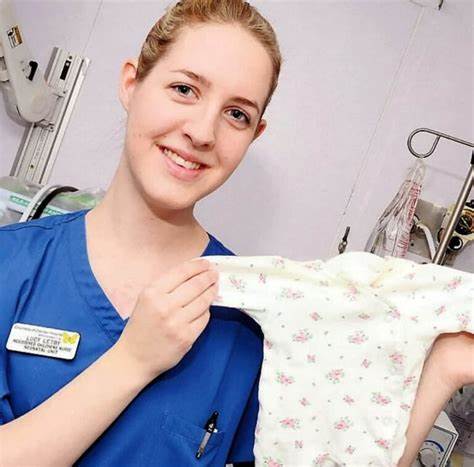
According to reports, Lucy Letby, a paediatric nurse working for the U.K.’s state-run healthcare system, has been sentenced to life imprisonment after being found guilty of the murder of seven babies and the attempted murder of six others. The trial, which lasted for a span of 10 months, occurred in Manchester last week. The jury delivered the verdict, finding Letby guilty, while she was acquitted of two other murder charges. The jury was unable to reach a verdict in four additional cases involving babies. These tragic incidents took place within the neonatal unit for premature babies at a hospital in central England.
During the sentencing, Judge James Goss noted that Letby’s actions demonstrated a deep malevolence and nearly sadistic behaviour. He imposed a sentence of life imprisonment with no chance of bail, a penalty reserved for the most heinous crimes in the British legal system. Goss highlighted that Letby’s qualifications, intelligence, and outwardly conscientious nursing demeanour allowed her to repeatedly harm infants in the neonatal unit.
Families of the victims, visibly emotional and distressed, addressed the court during the sentencing. They shared how the attacks shattered their lives. One mother, who lost her child in October 2015, conveyed that a part of them had died along with their baby. Other parents described ongoing struggles with depression and thoughts of suicide. Parents of surviving babies reported severe disabilities requiring constant care. In a particularly heart-wrenching testimony that spanned the morning, the father of two triplets linked to Letby’s actions expressed feeling deeply wounded upon learning about their deaths after initially being told they were doing well. “We were told their birth was a miracle. I held the boys briefly. We were overjoyed by their progress and noted how similar they looked.” He expressed bewilderment at the hospital’s inability to explain their sudden deterioration. “It was incredibly distressing. I was at a loss for words… I felt helpless and blamed myself.”
This case has cast a dark shadow over the National Health Service (NHS), which has historically been a source of pride in the U.K. The NHS is currently grappling with its most significant crisis since its establishment after World War II, attributed to budget constraints, an aging population, and challenges posed by the pandemic. The system is currently dealing with a record 7.5 million individuals waiting for routine treatments, overwhelmed emergency departments, and several strikes by medical personnel advocating for higher wages. In response to the Letby case, the U.K. government committed to an independent investigation, a move welcomed by the NHS, though they expressed shock and repulsion at Letby’s actions.
Officials from the Countess of Chester Hospital, where the crimes occurred, reassured the public that substantial changes had been implemented in their services since Letby’s conviction. The case drew parallels to other notorious incidents involving healthcare workers, like the infamous serial killer Harold Shipman and nurse Beverley Allitt, who both committed grave acts within the NHS.
Notably, Letby continued to work in her role for a year after the initial baby deaths in 2015, despite multiple doctors raising concerns to hospital management. In fact, doctors who reported Letby’s suspicious behaviour were pressured into apologizing to her rather than having their concerns addressed. Over time, her shifts were changed from nights to days, and the pattern of deaths shifted from night-time to daytime.
Prosecutors presented handwritten notes by Letby during the trial, containing statements like “I intentionally killed them because I am not capable of caring for them” and “I am malevolent, and I did this.” The disturbing series of events began in June 2015, with apparently healthy babies experiencing abrupt and unexplained declines in health. Suspicion grew among unit doctors when they discovered that Letby was present during all the incidents, prompting concerns to be raised with hospital management.
Regulators also faced criticism for missing signs of misconduct. Despite a government healthcare regulator’s audit in February 2016, revealing the need for improved safety in the paediatric wing, the increased new-born baby deaths did not receive attention at that time. Similarly, a separate review in 2016 did not identify a definitive cause for the unexplained deaths but did recommend procedural changes.
Source: the wall street journal